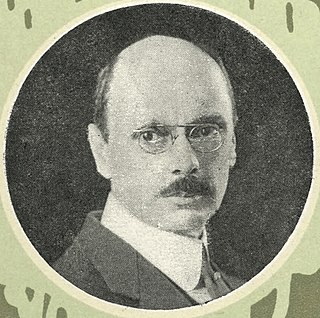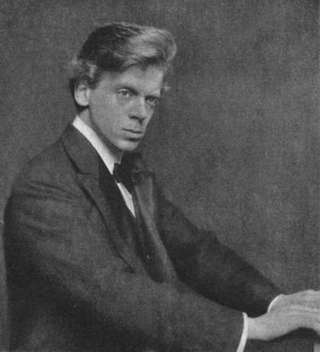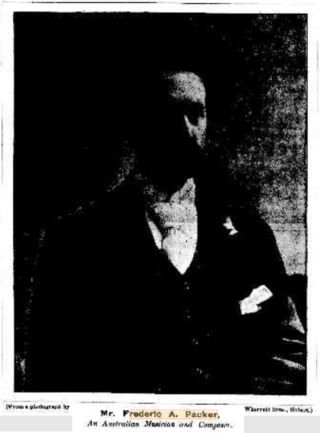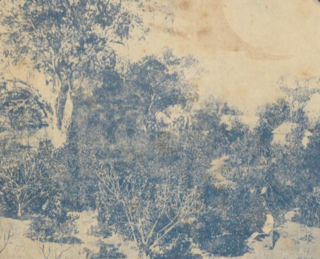
Theodor Kullak was a German pianist, composer, and teacher.

Sir Patrick Alfred Jennings, was an Irish-Australian politician and Premier of New South Wales.

George Howard Clutsam was an Australian pianist, composer and writer, best remembered as the arranger of Lilac Time. Clutsam published over 150 songs.

George Vern Barnett was an Australian organist, choir master and accompanist. He was an important figure in the musical and cultural life of Sydney for many years in the early twentieth century.
The Sydney Eisteddfod is an independent, community-based, not-for-profit organisation in Sydney, Australia.

George Herbert Fryer was an English pianist, teacher and composer.
Gordon Charles Watson AM was an Australian classical pianist and teacher. He taught at the Sydney Conservatorium of Music from 1964 to 1986, retiring as Head of the Keyboard Department.

Gerald Harman Walenn was a British violinist and composer of classical music.
William Stanley (1820–1902) was an English-born Australian classical music composer, conductor and performer.

Frederick Augustus Packer (1839–1902) was an Australian composer of Anglican spiritual and romantic music. He was born in Reading, Berkshire, of a musical family. His parents, Frederick Alexander Packer and Augusta Packer, both members of the Royal Academy of Music in London, arrived with their family in Hobart in 1852 to take up the position of organist at St David's Cathedral in Davey Street. He worked as a postal telegraph operator, parliamentary civil servant, organist and music teacher, notably of Amy Sherwin. He died after some years in Sydney He was a nephew of composer Charles Sandys Packer and an uncle to media mogul R. C. Packer.

Alice Ellen Lauentine Charbonnet was an Australian composer of romantic and classical music. Her father was a French judge, and her formative years were spent in a variety of countries. She married violinist Frederick William Kellermann; their daughter Annette Kellermann was a long-distance swimmer, vaudeville entertainer, film actress, and educator.

Albert Bokhare Saunders (1880–1946) was a successful and prolific composer of romantic and light classical music. He worked as an arranger for Sydney music publisher W.H. Palings. He worked under various pseudonyms including Albert Earl and Albert Trelba but is most widely known as Clement Scott.

Herbert De Pinna (1883–1936) was a composer and medical doctor. He was a medicine graduate from Cambridge University who trained at Middlesex Hospital. He opened a hospital in Queensland, but claimed he made more money from music.
Norman Chinner OBE LRSM was a South Australian organist and choirmaster.

Annie May Constance Summerbelle was an Australian composer of light classical and popular music. She was the third daughter of Captain William and Honoriah Summerbelle of Double Bay. Her sister, Stella Clare, married Francis Joseph Bayldon, a master mariner and nautical instructor. From the late 1880s she was a student of Alice Charbonnet-Kellermann, with Summerbelle's earliest compositions appearing in the early 1890s.

Gorjes Christian Crawford-Hellemann was an Australian composer, conductor and organist. He was born in 1881 to William Thomas and Harriet Ann Crawford-Hellemann in Towrang, NSW Australia. He was an Associate of the Royal College of Music. He was organist of Christ Church St Laurence, Sydney, 1927-1931 and 1933–1934. He died 26 February 1954.

The Bunyip, also known by the longer title The Enchantment of Fairy Princess Wattle Blossom, was written by Ella Palzier Campbell. The pantomime was a highly successful musical comedy that toured Australia for a decade within Fuller Brothers theatre circuit. The show was produced by Sydney entrepreneur Nat Philips. The premiere of the show ran for at least 97 performances and was revived several times over the following decade.

George De Cairos Rego (1858–1946) was an Australian composer of light classical music. He was appointed to the inaugural staff of the Sydney Conservatorium of Music. He was born in Victoria but lived mostly in New South Wales.

Ernest Edwin Philip Truman was an Australian organist and a composer of light romantic era classical music.
Albert Goossens was a Belgian baritone singer, a refugee to Australia during WWI, who appeared many times on the concert stage, raising funds for the relief of his home country, accompanied by his wife Alice Goossens-Viceroy, an accomplished soprano, who remained in Australia as a teacher and concert performer.
















